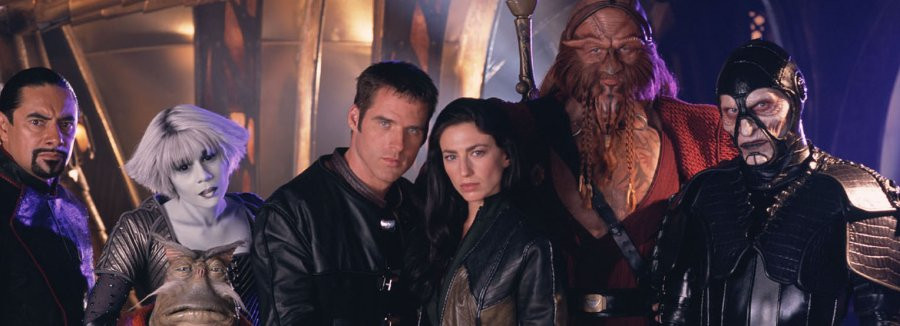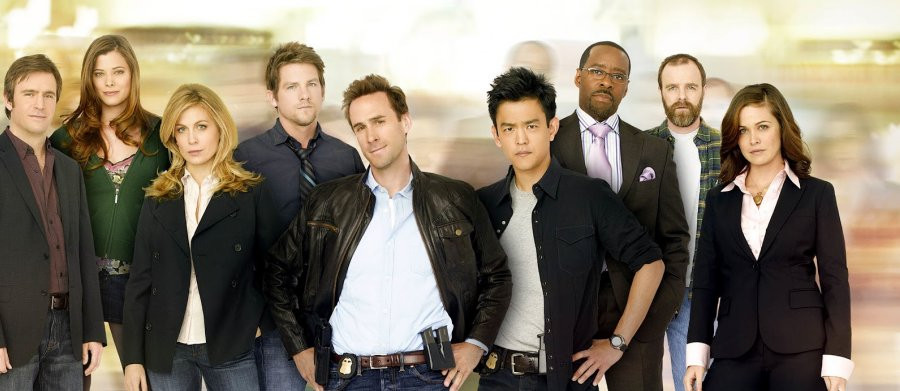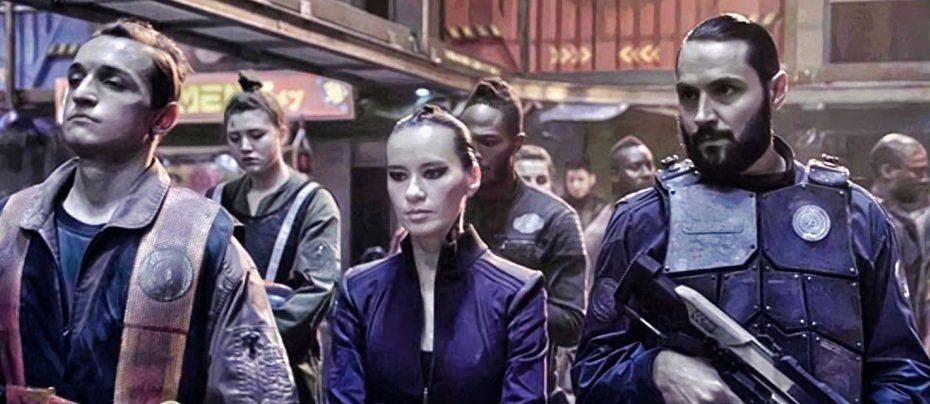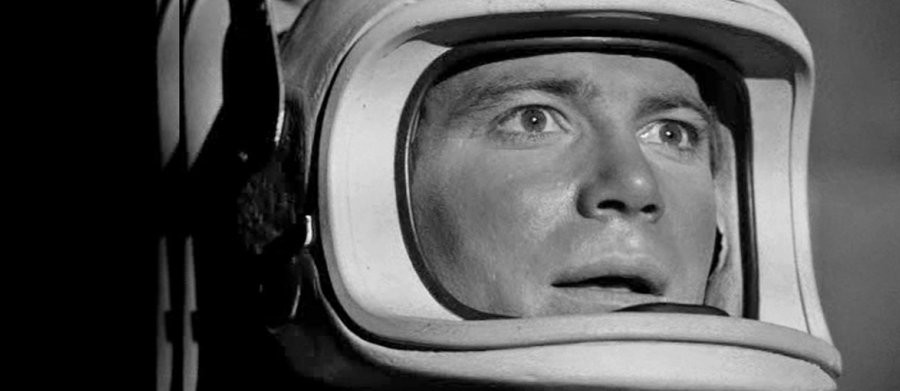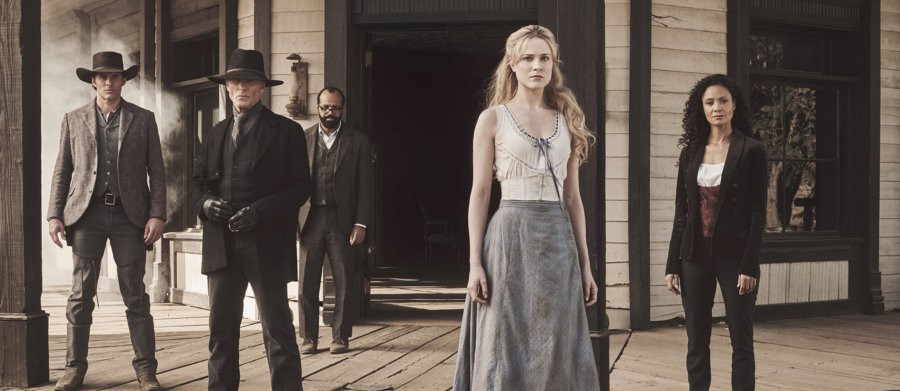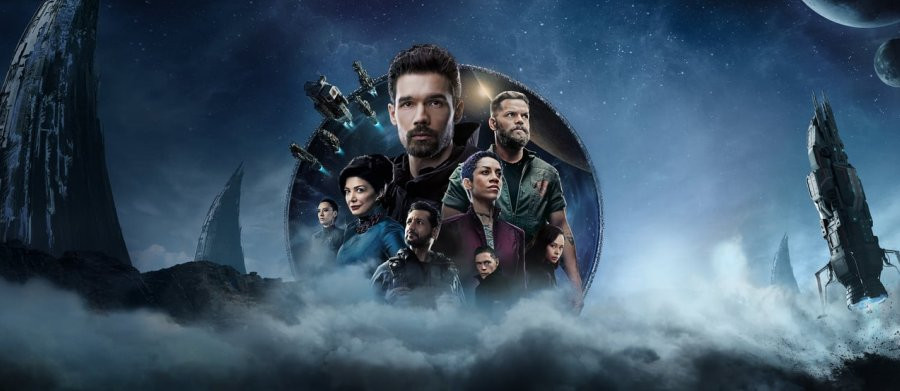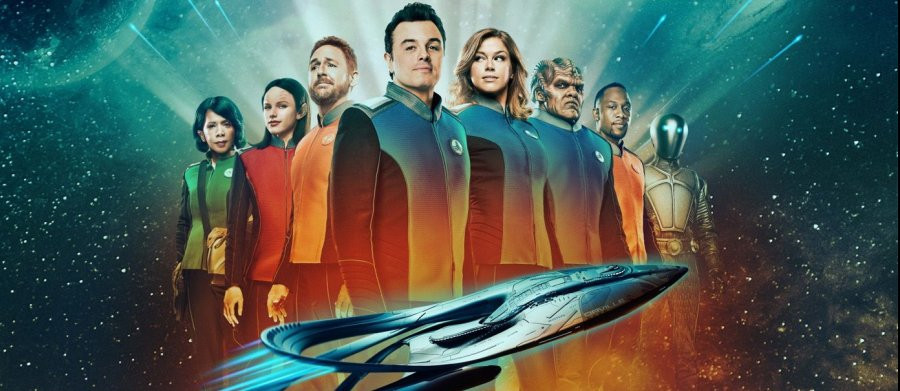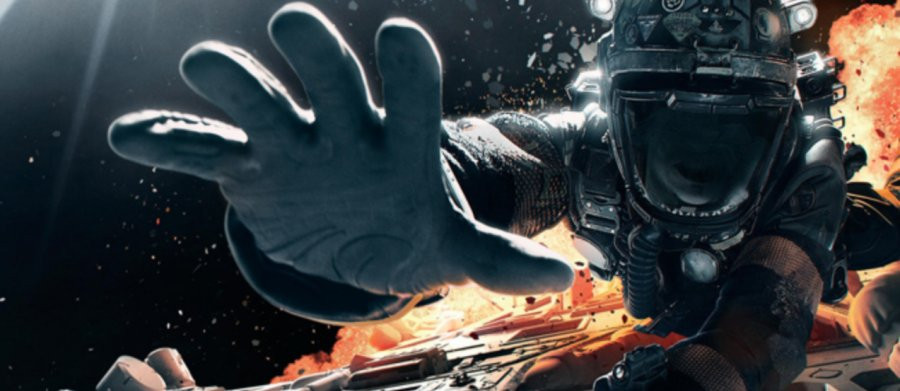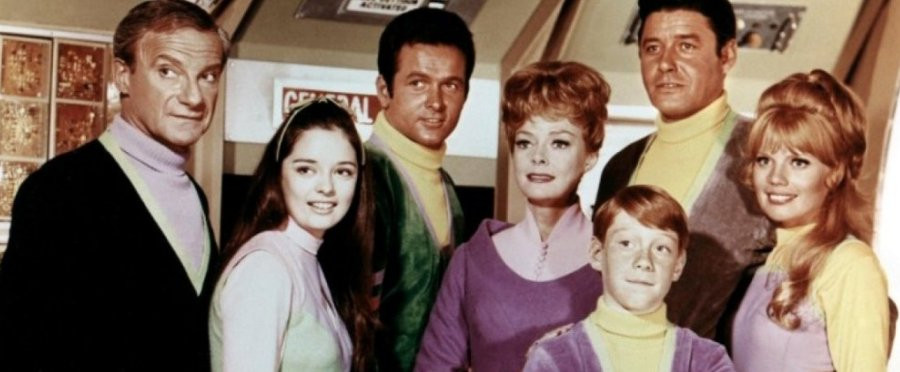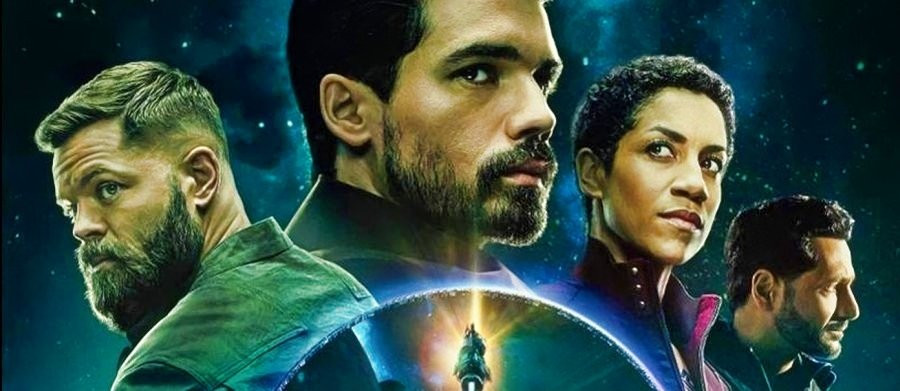
The Expanse - Season Four
Like its predecessors on this website, this overview of the fourth season of The Expanse is deliberately spoiler-light, but not entirely spoiler-free. Indeed, to cut immediately to the conclusion, this is great television, and it is recommended that you just go and watch it for yourself, but before you do so, you need to familiarise yourself with what has gone before, and before you read this, it might be best if you either watch the three previous seasons or at least read their overviews here.
Season Four represents a fundamental change. It was the first following the show's dramatic cancellation by 'Syfy' and its even more dramatic rescue a few days later by Amazon. As usual in such situations, the new management was eager to make its mark on its recently acquired property. What was more unusual was that its "improvements" really were improvements.
The first was the most significant: following their usual practice, Amazon commissioned a shorter season. This had several benefits. It tightened up the storytelling. It also ended the rather eccentric practice of effectively dividing a season into separate half-seasons, each with its own main storyline. While maintaining longer arcs that connect what has gone before with what is to come, Season Four has a self contained principal plot with a beginning, a middle, and an end, which is far more satisfying.
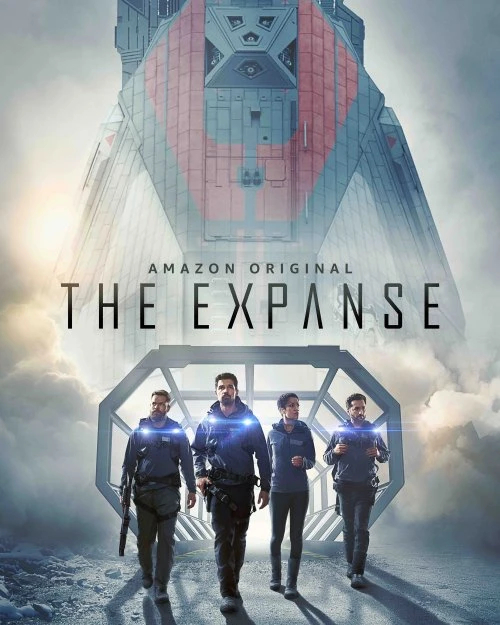
This takes the 'Rocinante' to a frontier planet, away from great events on Earth and Mars - a device that may be a narrative necessity because the second half of the previous season demonstrated how our heroes are now celebrities, having saved the Solar System a couple of times. UN bigwig Chrisjen Avasarala (Shohreh Aghdashloo) calls in a favour after sorting out some legal problems, a nice touch, and Captain James Holden (Steven Strait) and his crew are sent to investigate a disturbing natural (?) phenomenon on one of a large number of new worlds suddenly opened up to human exploration, in part by his own actions.
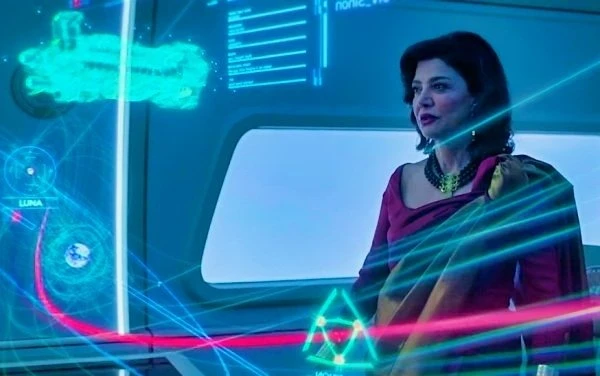
If this sounds unglamorous, the reality turns out to be even more so. The planet in question is a grey, depressing place, but it is already home to a band of poor, desperate "Belter" settlers from devastated Ganymede. Its rich lithium deposits have also attracted the attention of an Earth based corporation. This is obviously the same basic set up as a hundred Westerns and Western tributes, and for a while it seems to be playing out a lot like 'Shane' and 'Pale Rider,' but, The Expanse being The Expanse, the unexpected soon takes over.

The season is practically stolen by Burn Gorman as corporate enforcer Adolphus Murtry. If a character is called Adolphus, it is a fair bet that he is probably not going to turn out to be a good guy. One has to sympathise with Murtry to this extent: he was doomed by his parents, or the writers, when they gave him his name. Gorman is a versatile actor but at his best as a villain, most memorably the out of control Karl Tanner in Game of Thrones. Here he is far more controlled but just as psychotic when he gets the chance. The rest of the time he is calm and reasonable on the surface, and it is, significantly, Amos (Wes Chatham) who recognises his true nature, resulting in one of the best scenes of the season, crackling with suppressed aggression.

Yet one of the things that makes The Expanse different is its understanding that no one is entirely good or evil, right or wrong. Although it does not excuse either his character or his actions, the point is well made that Murtry is not unjustified in some of his basic assumptions. It is the more likeable characters who actually cause problems, and, if people like Murtry overreact in response, it is only because they believe it is a necessity. Murtry has good reason to treat the settlers as hostile, and that it is predictable that Holden and his crew side with the latter makes them legitimate targets. An unpleasant man may still have a valid point of view.
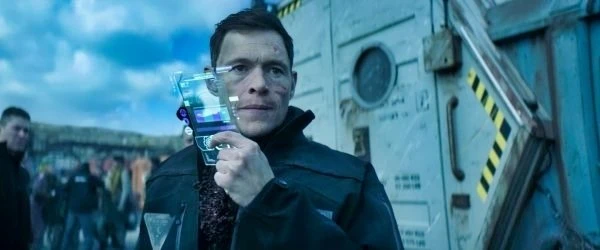
It is perhaps a pity that a lot of McGuffin stuff about the phenomenon Holden was sent to investigate rather overshadows this fascinating human conflict in the later episodes, but it does set up some tense and exciting sequences. We even get the unique spectacle of Amos visibly frightened by something - which is actually rather frightening in itself.
While all this is playing out on a single newly discovered planet, the fact that there are suddenly hundreds of such planets has immense repercussions on Earth, Mars, and the Outer Planets. Events on what the "Belters" call Ilus and the "Earthers" New Terra are just a single case in a general rush to colonise and exploit the new territories.

Avasarala, who seems about the only person in authority who remembers recent events, very sensibly urges caution until more is known - hence her concern about that strange phenomenon and sending Holden on his mission. However, the UN has elections and a demagogic candidate proclaims colonisation as the answer to all of Earth's problems. In particular, there is mass unemployment, overcrowding, and environmental collapse due to a huge surplus population, so there is no shortage of voters willing to listen to claims of quick and easy solutions.
Worse, those claims are made by a candidate who is young and pretty, and who has a good backstory, having risen from poverty against incredible odds. This presents a sharp contrast with Avasarala herself, a child of privilege from a political family. This makes her a politician to her fingertips, and her political wisdom was proved by her previous determination to stay under cover in the bureaucracy rather than seek elected office herself, because it also means she cannot even pretend to be a woman of the people. Some of the qualities that make her a great statesmen make her a poor candidate: her intellectual superiority comes across as arrogance and her pragmatism as insincerity. A typically ruthless political decision backfires badly.
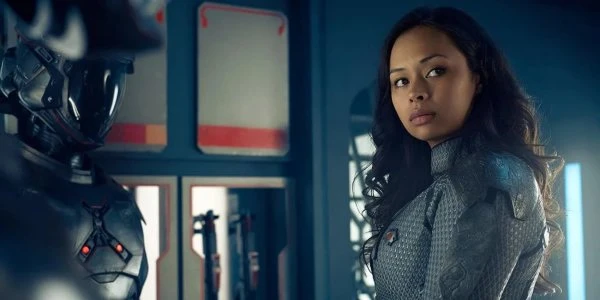
Mars is experiencing similar pressures. Martians were always willing to endure great sacrifices to achieve the long term objective of terraforming their planet. The sudden availability of an indefinite number of more suitable planets suddenly makes that look redundant. At the same time, the decommissioning of much of the Fleet in which they took such great pride leaves many Martians feeling lost, not least, our old friend Bobbie Draper (Frankie Adams).
Ironically the most patriotic of Martians, she has been disgraced for doing her duty and is forced to participate in the organised theft of military surplus. It is another great example of the willingness of The Expanse to consider all perspectives that even the ruthless criminals who threaten someone she loves become more sympathetic as she, and we, get to know them better.
Yet we also get clever hints that all was never well with Mars. It was evidently always a Police State, backed by a high degree of social conformity. Propaganda is everywhere, casually permeating every aspect of production design. The parallels with the Soviet Union become more obvious, except general standards of living appear to be much higher on Mars than on Earth, the analogue for the late 20th and early 21st Century West in The Expanse.
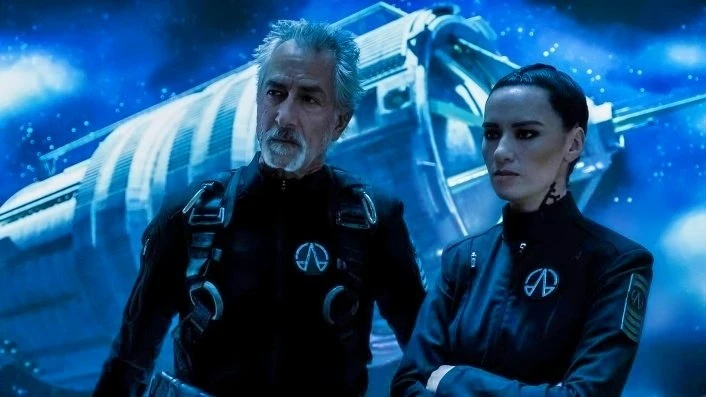
Meanwhile the Belt is represented by the enjoyable double act of Camina Drummer (Cara Gee) and Klaes Ashford (David Strathairn), cautiously reconciled after their, er, interpersonal difficulties at the end of the previous season. The former is still commander of the biggest vessel in the Solar System, now a space station, while the latter has his own ship again - hunting pirates, which is ironic since that was his own former occupation.
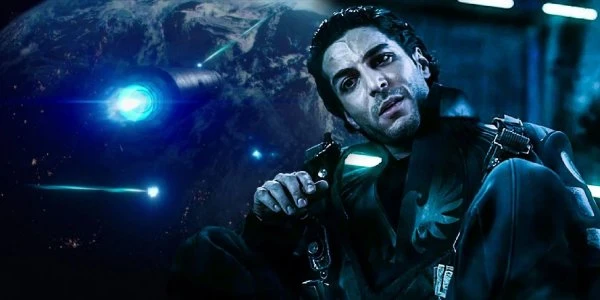
The worst of these is a cold blooded killer called Marco Inaros (Keon Alexander), but he is young and good looking so he literally gets away with murder. For all his political rhetoric, Inaros is an opportunistic psychopath and in many ways even Murtry is a more admirable personality. Chad L Coleman makes a brief return as Colonel Fred Johnson, but, for some reason, he is no longer the commanding figure of previous seasons.
In multistrand drama there are usually some storylines that are appreciably weaker than others. Here we have a rare example of four strong plots running in tandem. If it is, as always, frustrating to leave a particularly exciting one, it does not matter so much because something interesting is usually happening in the one that takes its place. The principal characters and relationships are now well established. The guest and supporting characters are treated as human beings, not plot devices. The season ends with a shock that will stay in the mind, and, while the main story arc of the season is complete, things are set up nicely for Season Five.
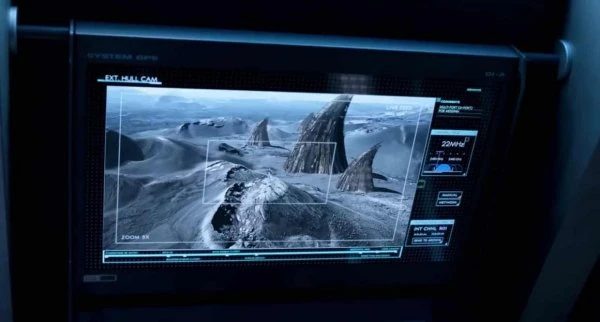
There is less visual beauty than in previous seasons. The Canadian quarry that serves as the location for the harsh frontier planet Ilus/New Terra was chosen deliberately for its unpleasant appearance. Someone obviously loves 'Lord of the Rings' because there are constant references in the use of effects. Elsewhere, it is interesting to see life on Mars - which is apparently one big Holiday Inn, clean and comfortable but a bit soulless - and fun to see Avasarala enjoying the high life. Again, the contrast between her casual privilege and the lives of everyone else in the show speaks for itself, as does the fact that she seems wholly oblivious to it. Her brightly coloured clothes have always been a visual delight in their own right - even Amos is fascinated - and it is a voyeuristic treat to get a peek inside her actual wardrobe. It is not small.
Every aspect of the production is handled with perfect professionalism. If you want to see a recent example of a show that has reached maturity and is running at its peak, Season Four of The Expanse is as good as anything currently being made at the time of writing.
Review: John Winterson Richards
John Winterson Richards is the author of the 'Xenophobe's Guide to the Welsh' and the 'Bluffer's Guide to Small Business,' both of which have been reprinted more than twenty times in English and translated into several other languages. He was editor of the latest Bluffer's Guide to Management and, as a freelance writer, has had over 500 commissioned articles published.
He is also the author of ‘How to Build Your Own Pyramid: A Practical Guide to Organisational Structures' and co-author of 'The Context of Christ: the History and Politics of Rome and Judea, 100 BC - 33 AD,' as well as the author of several novels under the name Charles Cromwell, all of which can be downloaded from Amazon. John has also written over 100 reviews for Television Heaven.
John's Website can be found here: John Winterson Richards
Published on July 6th, 2021. Written by John Winterson Richards for Television Heaven.


